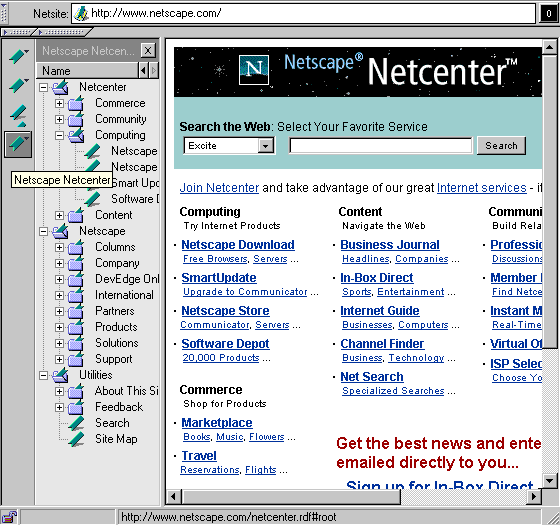
Figure 1: Mozilla Support For A Site Map
This briefing document was produced for the eLib / UKOLN seminar on "What is RDF?" held at the Stakis Hotel, Bath on Friday 8th May 1998.
Note that RDF has not been finalised. This document reflects the position in May 1998. There is no guarantee that information in the document will continue to be valid.
RDF can be regarded as the missing architectural component of the web. RDF was developed following various work on metadata areas, such as content filtering (PICS), resource discovery (Dublin Core), digital signatures (DSig) and site mapping (MCF and Web Collections). RDF provides a generic framework which could be used to implement these, and various other applications.
RDF uses XML, the Extensible Markup Language as its transfer syntax. RDF offers more than XML could provide by itself, however. RDF incorporates a formal mathematical model which can define relationships between resources. This will enable RDF to provide "knowledge representation".
RDF also employs XML’s notion of URI-addressable namespaces. These enable a wide variety of metadata vocabularies to be employed within one resource without encountering clashes of the names. Note that a centralised naming authority is not required, enabling new schemas to be deployed rapidly.
An example of representing Dublin Core metadata in RDF is given below.
<?xml:namespace href="http://www.w3c.org/RDF/" as="RDF"?> <?xml:namespace href="http://purl.oclc.org/RDF/DC/" as="DC"?> <RDF:RDF> <RDF:Description RDF:HREF="http://homes.ukoln.ac.uk/~lisap/"> <DC:Title>My personal home page</DC:Title> <DC:Creator>Andy Powell</DC:Creator> <DC:Identifier>http://homes.ukoln.ac.uk/~lisap/</DC:Identifier> </RDF:Description> </RDF:RDF>
Note that in this example there are two namespaces. The Dublin Core namespace is defined at http://purl.oclc.org/RDF/DC/ and referred to as "DC" and the RDF namespace at http://www.w3.org/RDF/ and referred to as "RDF".
Although RDF is relatively new and the specifications are still at a draft stage, there are already a number of tools available which can process RDF applications, make use of RDF as the underlying data format or create RDF.
Recently Netscape released the source code of their browser. A version of Mozilla is available which supports RDF. Applications include management of site maps, bookmarks and history lists.

Figure 1: Mozilla Support For A Site Map
The HotWired and Netscape websites both contain links to the site mapping RDF file from the home page. Examine the HTML source of these pages to find the URL of the RDF file.
Java Central Station is a searching service which provides access to Java resources from around the world. Java Central Station uses RDF for describing the data collected by the robot.
Java Central Station has been developed by IBM. See <URL: http://www.ibm.com/java/>.
RDF for XML is a Java implementation of the RDF specification for creating technologies that search for data and describe, categorize, rate, and otherwise manipulate the data.
RDF for XML has been developed by IBM. For further information see <URL: http://www.alphaworks.ibm.com/formula/rdfxml>.
Reggie is a metadata editor which has been designed to enable a variety of metadata formats to be created using one editor. Reggie is a Java application which been developed by DSTC (Distributed Systems Technology Centre). The interface is illustrated in Figure 3.
For further information on Reggie see <URL: http://metadata.net/dstc/>.
DC-Dot is an editing tool for Dublin Core which has been developed by UKOLN. It currently being updated so that output can be created in RDF format, as well as in HTML 2.0 and HTML 4.0 formats.
Figure 4 shows the interface for DC-Dot.
At the WWW 7 conference held in Brisbane in April 1998 Andrew Waugh gave a paper on "Specifying Metadata Standards for Metadata Tool Configuration". This paper described the PrismEd generic metadata editor, which is available at <URL: http://www.mel.dit.csiro.au:8080/~ajw/schema/editor.html>.
Anyone considering making use of RDF will need to address a number of issues including: